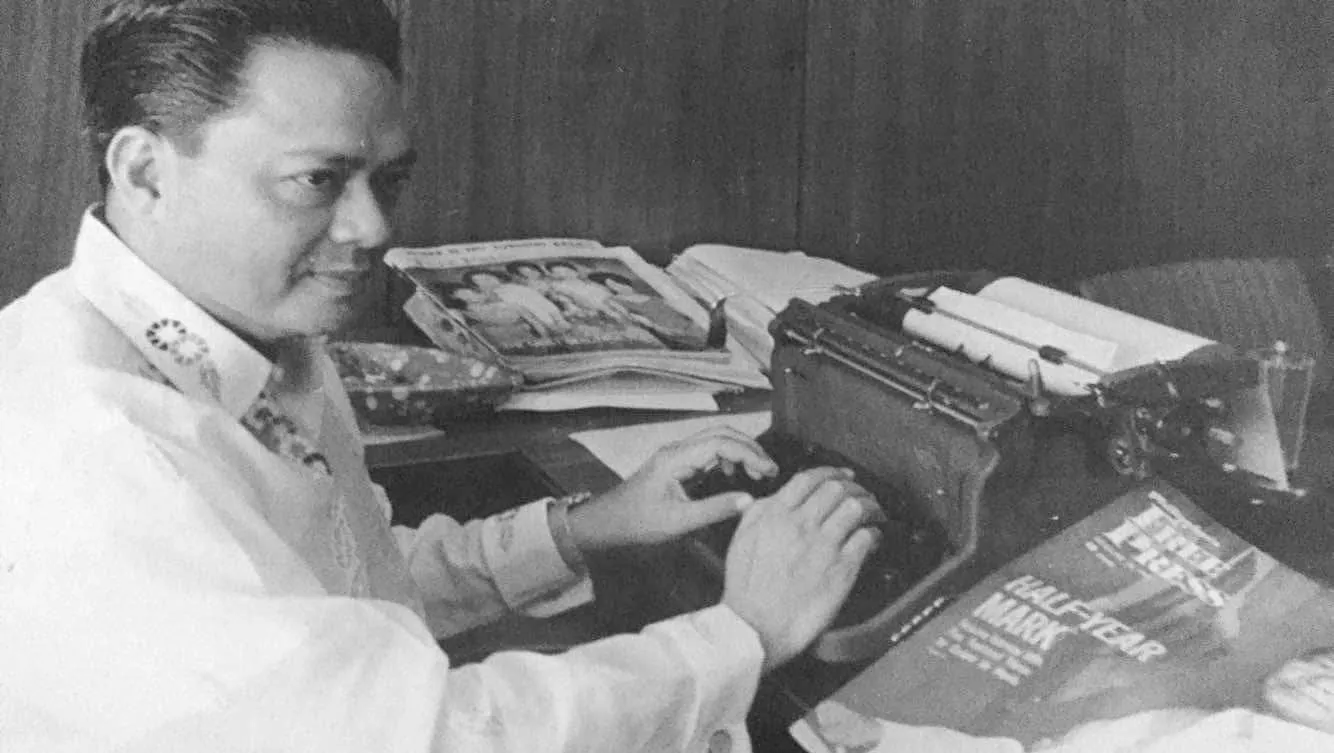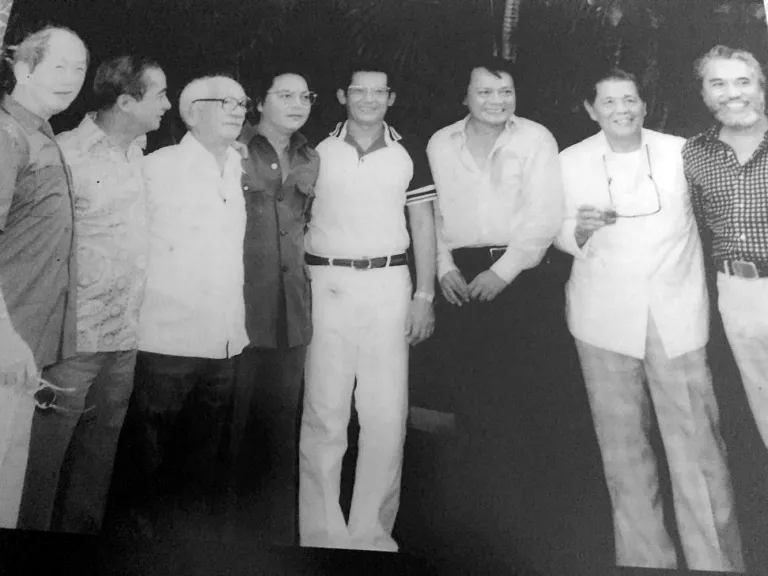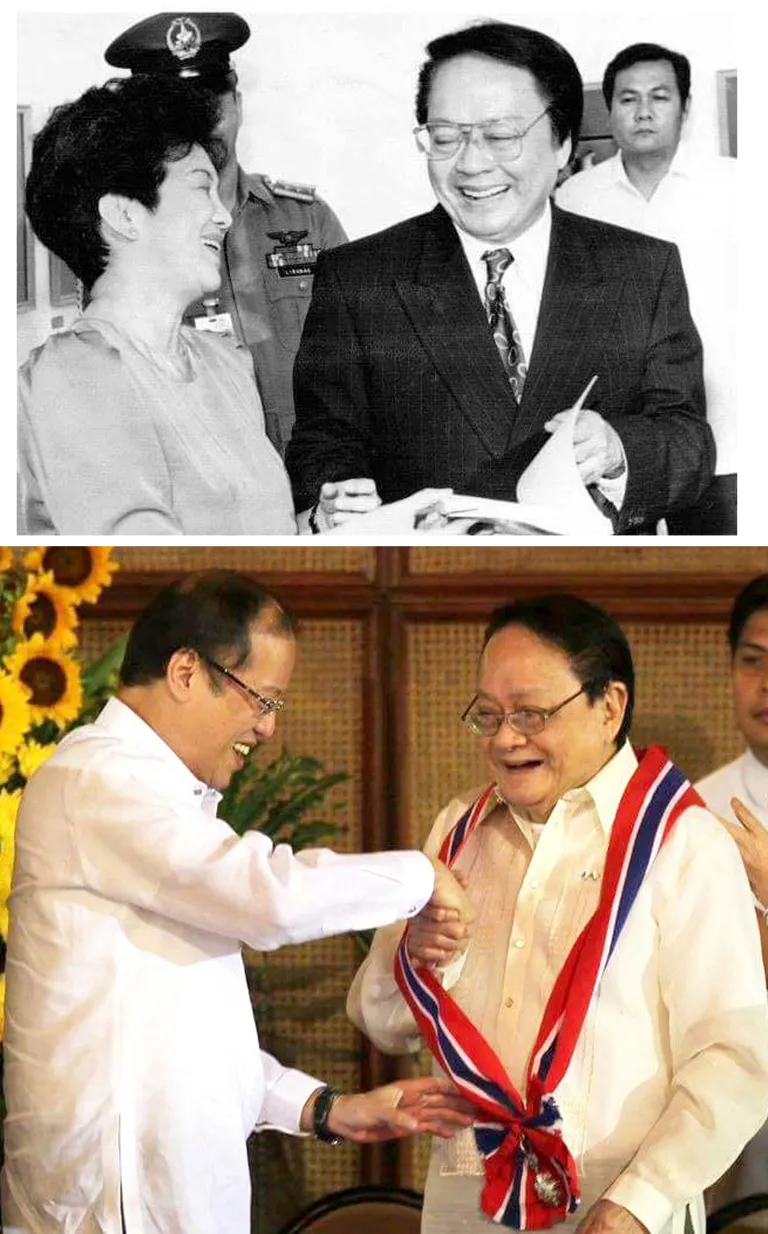Napoleon G. Rama: fearless Cebuano journalist on national stage
Passage

Napoleon G. Rama: fearless Cebuano journalist on national stage
LINETTE RAMOS-CANTALEJO
Sept. 2016 ( CJJ11 )
THERE is perhaps no other Cebuano journalist in Manila who has ranked as high in the editorial hierarchy as Napoleon “Nap” G. Rama Sr.
He was publisher of Manila Bulletin from 1987 to 2004, where he also wrote a column. Rama, who passed away on Jan. 10, 2016 at age 92, was also a political writer for the Philippines Free Press for more than a decade.
He was a lawyer, a political figure and a prolific writer both in English and Spanish.
“He was writing in the school paper back in college. He didn’t take up journalism, but it was his first love,” said his daughter Gina Rama.
Rama had attended the University of San Carlos seminary in Cebu City to learn and master the Spanish language. He became the school paper’s editor-in-chief.
Corazon Rama-del Prado said her older brother’s main influence and mentor was their father, the late former senator Vicente Rama, founder of the Spanish newspaper La Nueva Fuerza and the opposition newspaper Bag-ong Kusog.

Arrest. 1971 Constitutional Convention delegate and Philippines Free Press writer Napoleon Rama (sixth from left) reunites with the people arrested with him when Martial Law was declared in 1972 (among them from left): Philippines Free Press editor Teodoro M. Locsin Sr., poet and former senator Francisco “Soc” Rodrigo, and Manila Times publisher Joaquin “Chino” Roces, and senators when arrested Benigno “Ninoy” Aquino Jr. and Jose “Pepe” Diokno, (flanking Rama) and Ramon Mitra Jr. (Contributed photo)
Not wanting to be in the shadow of his father, Rama left Cebu for Manila in 1954 to make a name for himself in journalism. He was a political writer for the weekly Philippines Free Press from the late 1950s to the late 1980s (with a break from 1972-1986 when a government clampdown shuttered it), where his article “North Borneo belongs to us” was published in 1961. The story later became the basis for government negotiations to reclaim ownership of Borneo (Sabah), said a Manila Bulletin report.

Rama with two presidents. Napoleon Rama shows Corazon Aquino the book he wrote on her administration, “A Time in the Life of a Filipino.” Years later, in 2011, her son, President Benigno S. Aquino III awarded him the Presidential Legion of Honor with the rank of grand commander during the 25th anniversary of the Edsa Revolution. (Contributed photo)
Rama’s subjects were varied—from investigative articles on the tax declaration of elected officials to essays on social problems—but most notable were his stories on Martial Law.
He was vocal and fearless in his search for the truth during the Marcos dictatorship, particularly in preventing a Marcos dynasty, said his nephew, former Cebu City mayor Michael Rama. This led to his arrest on the night Martial Law was declared in 1972, along with former senator Benigno “Ninoy” Aquino Jr.
Gina believes her father lasted six decades in journalism because of his integrity, strength of character, and courage in telling the truth.
Among his accolades as a journalist and democracy advocate were the Ninoy Aquino Memorial Award in 1990, the Premio Zobel in 1992 (the Philippines’ oldest and highest Spanish literary award), and the Presidential Legion of Honor with the rank of grand commander during the 25th anniversary of the Edsa Revolution in 2011.
Rama was also editor of El Observatorio, a Spanish newspaper in Cebu that regularly published news stories about Spain and South America. In 1990, he also wrote “A Time in the Life of a Filipino,” a book compiling his editorials that tackled current events, Filipino values, and solutions to various problems the Philippine society faced then.
As for his political achievements, he was vice president of the 1971 Constitutional Convention and floor leader of the Constitutional Convention that drafted the 1987 Constitution. 
